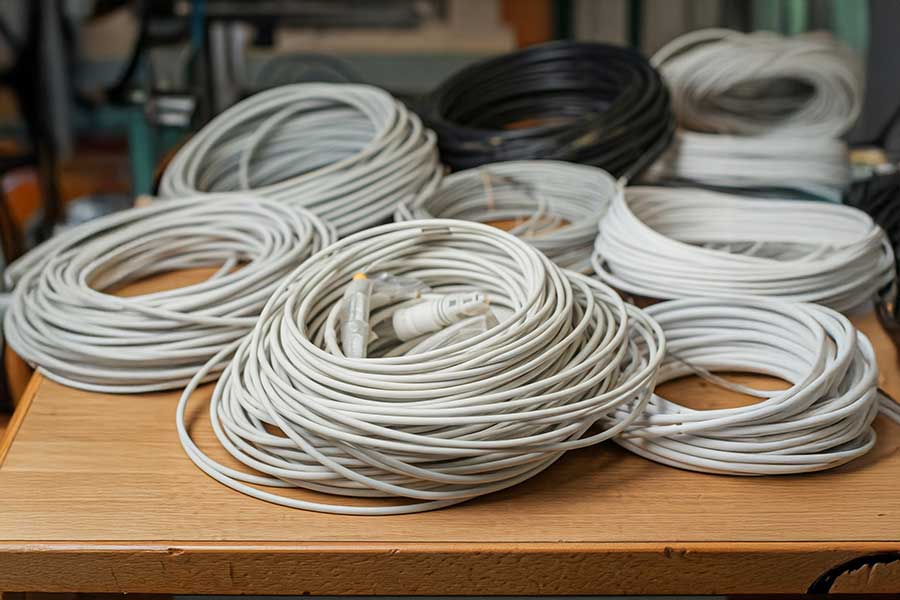
Cable factories are complex and high-tech production centers where cables are produced, which form the backbone of electricity, which is indispensable in the modern world. In these factories, a long journey takes place, from a bare wire to the complex wiring systems that light our homes, run factories and feed communication networks.
Production Process at Ülkü Kablo Factory
Although cable production may seem simple, it is a very complex process consisting of more than one stage. In general, cable production includes the following stages:
- Raw Material Preparation: Conductive metals such as copper and aluminum, as well as various insulation materials, armoring materials and other auxiliary materials are prepared before production.
- Wire Drawing: Raw materials are processed with wire drawing machines according to the desired thickness and feature. This process increases the electrical conductivity of the wire and improves its mechanical properties.
- Insulation: Drawn wires are covered with a variety of insulating materials. In this way, the wires are insulated from each other and protected against external factors.
- Twisting: Insulated wires are twisted in a specified number and shape to form multicore cables.
- Armoring: When necessary, cables are covered with steel armor to protect against mechanical damage.
- Outer Sheathing: The cable is coated with outer sheath materials such as PVC and polyethylene to protect it against external factors.
- Quality Control : At each production stage, the electrical, mechanical and chemical properties of the cables are meticulously checked.
- Wrapping and Packaging: Cables that pass quality control are cut, wrapped and packaged in specified lengths.
Technologies Used in Ülkü Kablo Factories
In cable factories, different technologies are used at each stage of the production process:
- Automation Systems: Cable production is largely carried out thanks to automation systems. Robots automatically perform operations such as wire drawing, insulating, and twisting.
- CNC Machines: Numerically controlled machines are used in processes that require high precision.
- Quality Control Devices: Electrical measuring instruments, microscopes, and other testing equipment are used to check the quality of cables.
- Computer Aided Design (CAD): The design of cables and the planning of production processes are done with CAD software.
Importance of Cable Factories
Cable factories are vital for the safe generation, transmission and distribution of electrical energy, which is indispensable for modern life. The cables they produce are used in the electrical installations of our buildings, industrial facilities, communication systems and energy transmission lines.
Cable factories are highly complex and dynamic environments where today's technology and industrial production processes come together. The cables produced in these factories are a vein where the heart of the modern world beats.
Additional Information
- Cable Types: Cable factories produce cables with different specifications according to the area of use. These include many types such as power cables, control cables, telecommunication cables, fiber optic cables.
- Sustainable Production: Today , cable factories attach importance to sustainability by developing environmentally friendly production methods.
- Research and Development : Cable factories are constantly researching new materials and manufacturing techniques, striving to develop better and more efficient cables.
